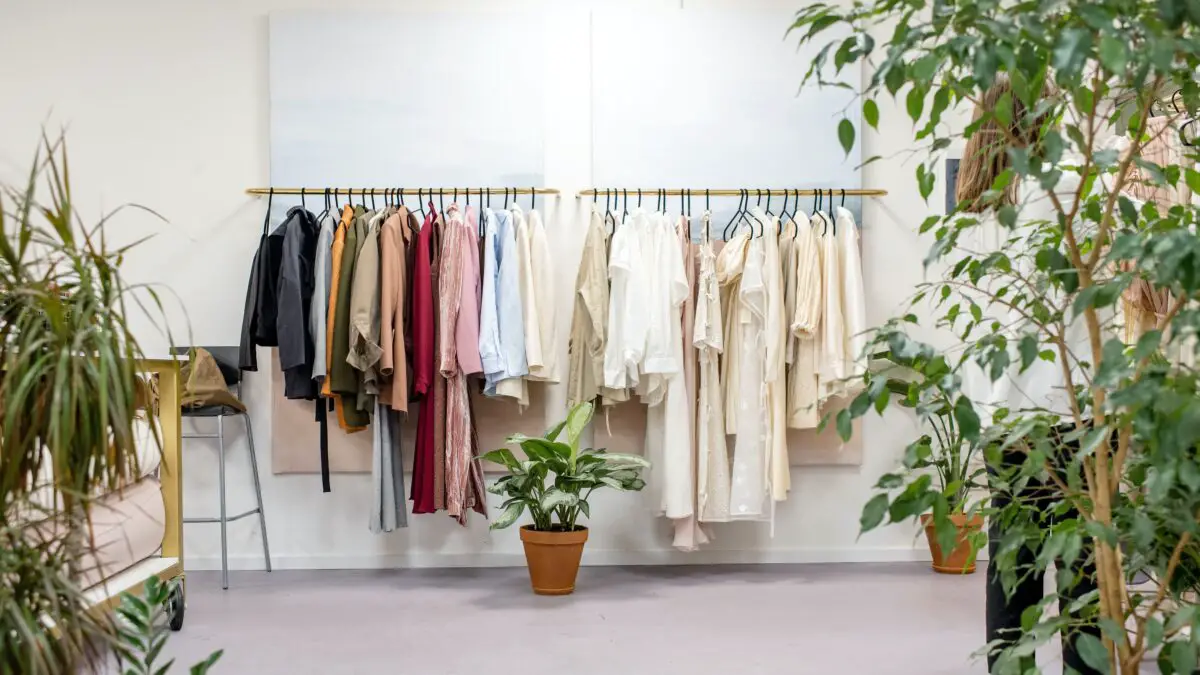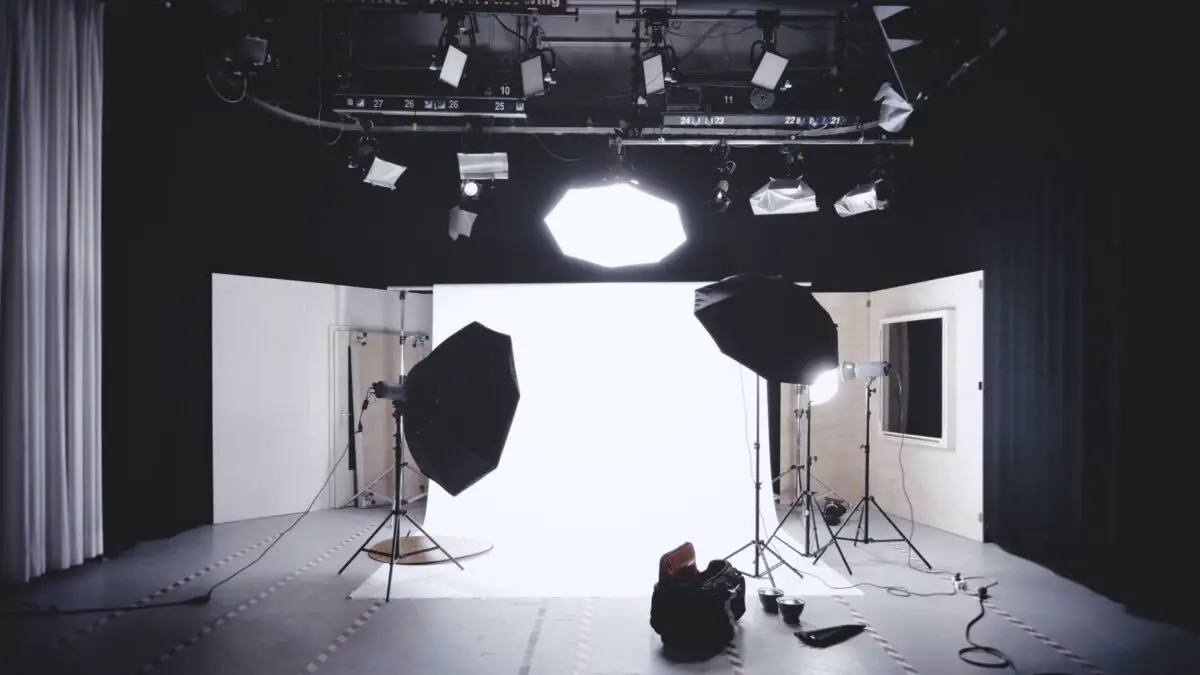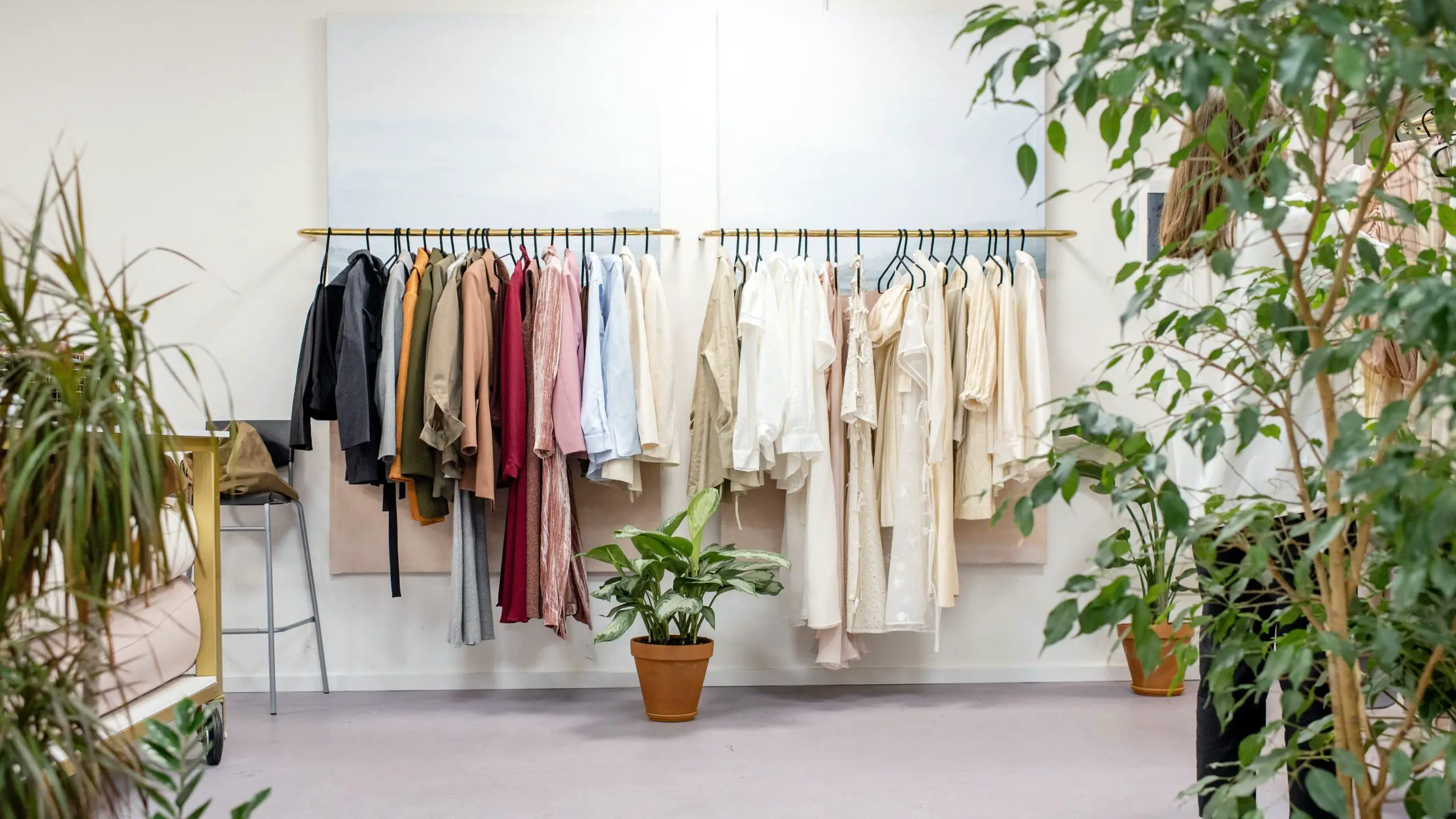Let’s unravel some top idioms about clothes, fashion, and dressing up. This exploration of English sayings covers everything from ‘dressed to the nines’ to ‘old hat’ and so much more!
But before we get stuck into these fashion and clothes idioms, be sure you understand what idioms are and why we use them in the English language.

Clothes idioms
We’ll begin our list with some popular idioms about clothes. Following this, you’ll find some fantastic fashion idioms.
Clothes make the man
The saying clothes make the man suggests that people judge you based on how you dress. If you believe this, it’s important to dress appropriately for different situations to make a good first impression.
“Although he didn’t have much experience, he looked like he fitted right in. Clothes make the man, after all.”
If you don’t believe this is true, you could equally comment that clothes don’t make the man.
Although the same can be true of women, we don’t so often hear the phrase applied to them.
Dress the part
The clothes idiom dress the part refers to the same idea: that you should dress according to your position or situation.
“You’ll never get the job if you don’t dress the part for the interview.”
You may also hear look the part to refer more broadly to how someone looks in terms of their clothes, hair, makeup, and overall appearance.
A wolf in sheep’s clothing
Here we have an animal idiom and a clothing idiom in one! It describes someone who appears harmless or innocent but is actually deceptive or dangerous.
“Beware of him; he may seem friendly, but he’s a wolf in sheep’s clothing.”
The wolf in sheep’s clothing is one of Aesop’s fables. These short stories about animals were written in ancient Greece and each one tells a life lesson.
This particular saying also featured in Jesus’ Sermon on the Mount, found in the book of Matthew 7:15: “Beware of false prophets, which come to you in sheep’s clothing, but inwardly they are ravening wolves.”
You may be surprised how many modern idioms and sayings come from the Bible.
Wear your heart on your sleeve
A sleeve is the part of a piece of clothing that covers your shoulders and arms. People may comment that you are wearing your heart on your sleeve when you openly display your emotions or feelings, with no effort to hide what you are thinking.
“He’s always wearing his heart on his sleeve, showing his excitement and enthusiasm for everything he loves.”
Scrub/clean up well
This expression could be seen as a backhanded compliment. If you tell someone they scrub or clean up well, it means they look good when they make an effort to dress up, even though they usually look quite shabby.
“I was surprised to see that Jason scrubs up so well!”
This is one of many clean idioms that isn’t really about cleaning.
Dress up
This is a common phrasal verb that’s helpful to know. To dress up is to dress in smart, fancy, or formal clothes for a special occasion such as a party or a ball.
Someone who has already done this can be described as dressed up.
“Don’t forget to dress up for dinner tonight. We’re going to an upmarket restaurant.”
“It’s going to take me ages to get dressed up for prom!”
All dressed up with nowhere to go
A lot of these clothing idioms describe looking good and being well-dressed. The saying all dressed up with nowhere to go takes it one step further and describes the feeling of being fully prepared or ready for something but having no opportunity to use or show it.
“I spent hours getting ready for the party, but it got canceled. Now I’m all dressed up with nowhere to go.”
Have a skeleton in the closet
If you have something to hide or an embarrassing secret from the past, you have a skeleton in your closet.
“Everyone was shocked when they discovered the famous actor had a skeleton in the closet – a criminal record from his youth.”
Speaking of skeletons, we also have a fun Halloween idioms list to check out.
Be/walk in someone’s shoes
Empathy is an important skill to learn. To walk or be in someone’s shoes means to share someone’s experience or circumstances or to be in the same position as them.
“It’s easy to criticize your mother now, but one day you’ll be in her shoes.”
You can also put yourself in someone’s shoes, which means to imagine yourself in someone else’s position or situation to better understand their perspective.
“Before you judge her decisions, try to put yourself in her shoes and consider the challenges she’s facing.”
Walking idioms are surprisingly versatile in the topics they cover.
Have something up your sleeve
When you have something up your sleeve, you have a secret plan, trick, or idea that you intend to use later.
“Don’t underestimate her; she always has something up her sleeve to turn the situation in her favor.”
“My grandfather always has something fun up his sleeve.”
Wear the pants/trousers
Whether you use the American ‘pants’ or British ‘trousers’, this relationship idiom is used to describe the dominant or controlling person in a relationship or situation. You can say that somebody wears the pants if they seem to have the authority to make the decisions in a family or household.
“You can tell that she wears the pants in their house.”
This expression may be a little outdated now, as it stems from a more traditional time when women didn’t wear pants (or have so much say in their relationships).
Do you want to learn more ways in which American and British English use different words?
Dressed to kill
When you hear the saying dressed to kill you may think of the 1980s movie of this name. As one of our clothing idioms, though, it describes being dressed in an extremely stylish or glamorous manner, attracting attention and admiration.
“She walked into the party dressed to kill, turning heads wherever she went.”
Dressed to the nines
Here’s another clothes idiom about being well-dressed. If you want to exaggerate that someone is dressed in a stylish and sophisticated manner, paying attention to every detail, you could say they are dressed to the nines.
“He arrived at the gala dressed to the nines in a perfectly tailored suit.”
Old hat
The last of our idioms about clothes is old hat. This saying describes something outdated, unoriginal, or no longer fashionable. It suggests that the thing in question has been around for a long time and is no longer of interest or novelty.
“Oh, those dance moves are old hat now. Let me show you the latest viral dance everyone is obsessed with!”
While we’re on the topic of dancing, you might want to check out some dance idioms as well.

Fashion idioms
Fashion victim
The term fashion victim refers to someone who blindly follows every fashion trend without considering whether it suits them or not, often resulting in a lack of personal style.
“She’s such a fashion victim, always wearing the latest trends without any regard for what actually looks good on her.”
In vogue
When it comes to fashion idioms, being in vogue is very important. It describes a person, style, or trend that is currently fashionable or popular.
“Pastel colors are in vogue this season, so I’ve been updating my wardrobe with soft shades and light tones.”
You could also say in fashion to mean exactly the same thing. Check out some more idioms about beauty and looks here.
Out of fashion/style
Not all of these fashion idioms are about looking good. In contrast to the one above, out of fashion or style means no longer trendy or fashionable.
“Skinny jeans are out of fashion now; it’s all about wide-leg pants and flares.”
“Sorry to be blunt, but that shirt makes you look so out of style.”
Fashion-forward
Somebody described as fashion-forward actively keeps ahead of current fashion trends and has an innovative wardrobe.
“She’s always one step ahead when it comes to fashion. Her style is truly fashion-forward.”
Make a fashion statement
One way to get noticed by others is to make a fashion statement. This means having a bold style and expressing yourself through your clothing and accessories, either to attract attention or to convey a particular message or image.
“I want to make a fashion statement, but are these sunglasses too much?”
Trendsetter
A few of these idioms about fashion are similar in meaning. Someone who is fashion-forward could also be called a trendsetter. This is someone who sets new fashion ideas and influences others with their unique style.
“She’s known for being a trendsetter, always introducing new and unconventional fashion choices that others eventually follow.”
Fashionably late
Interestingly, this saying has nothing to do with clothes or fashion but is, in fact, more of a party idiom. It’s not just about being late to an event or gathering; to be fashionably late is to do so stylishly and deliberately, often carrying a sense of importance.
“She made a grand entrance, fashionably late, capturing everyone’s attention as she stepped into the room.”
A flair for fashion
People who have a natural talent or inclination for fashion and style can be said to have a flair for fashion.
“I’m not surprised she grew up to become a designer. Ever since she was young, she had a flair for fashion.”
Follow fashion blindly
To follow fashion blindly is not always a good thing. It means you unquestioningly follow clothing trends without considering personal taste, suitability, or how you really look!
“He doesn’t have a unique style; he just follows fashion blindly.”
We hope these fun fashion and clothing idioms will bring a fresh flair to your writing. If you want to stay in the loop with the latest linguistic trends, join our newsletter using the form below.


